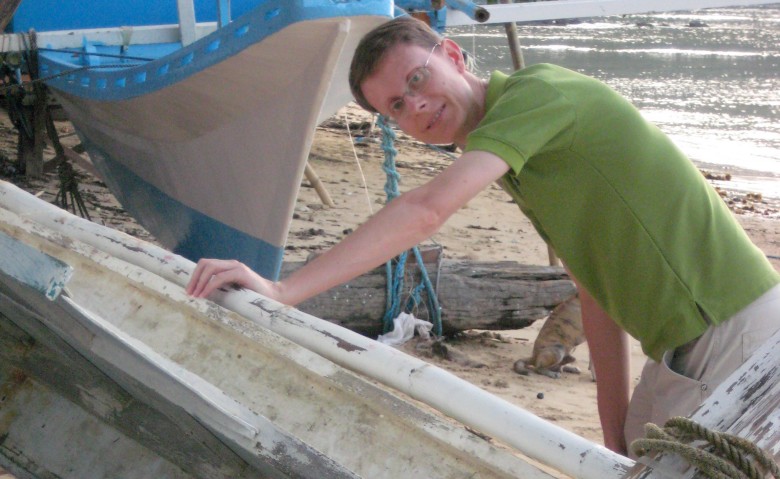
Systems thinking and system dynamics specialist Carl Smith
Feedback loops, systems thinking
April 17 2014
What makes CCRES different? Well, the answer may depend on who among the CCRES team you ask.
Carl Smith will tell you it’s how CCRES will bring a ‘whole of system’ business thinking to the way in which coastal communities manage their natural capital assets to support sustainable livelihoods.
As a beekeeper, Dr Smith understands instinctively how the ecological and the economic can work in harmony – yet, with a background in traditional agricultural science, he is used to looking at livelihoods which are in conflict with ecosystems and degrade the services they provide.
“In the CCRES project we are trying to turn that around and develop businesses and livelihoods that actually enhance and support ecosystem services,” says Carl.
A senior lecturer in the School of Agriculture and Food Science at The University of Queensland, Carl’s role in CCRES is to investigate the links between ecological and socio-economic systems.
“We will model those relationships so that we can see how livelihoods can be designed that either maintain ecosystem services or enhance them. We can design experiments that test different scenarios and see what happens if the ecology changes.”
Carl will work closely with Dr Mark Milstein from the Center for Sustainable Global Enterprise at the Johnson School of Management at Cornell University on the CCRES project. Their work will demonstrate how communities can combine local knowledge with business knowledge and decision-making tools to create complementary suites of businesses that promote social, environmental and financial outcomes.
“What excites me about CCRES is the opportunity to design livelihoods and businesses which work in harmony with ecology and enhance ecosystem services, while at the same time providing communities with income and employment,” says Carl.
“Like the bees and their honey, we need healthy ecosystems for food security and wellbeing. CCRES allows us to look at the whole system to work out what opportunities exist and what trade- offs may be necessary to ensure coastal ecosystems can continue to provide these things.”
Carl teaches Systems Thinking and System Dynamics at The University of Queensland. He has conducted research with the Australian Centre for International Agricultural Research (ACIAR) in the Philippines and PNG, and Australian Research Council projects in Australia. Carl has supervised various PhD projects on tourism, forestry, catchment management, wildlife conservation, agriculture, and invasive species management.



